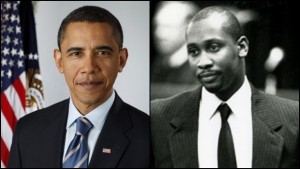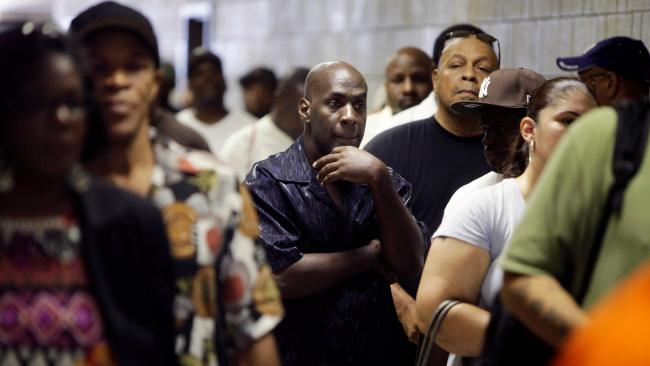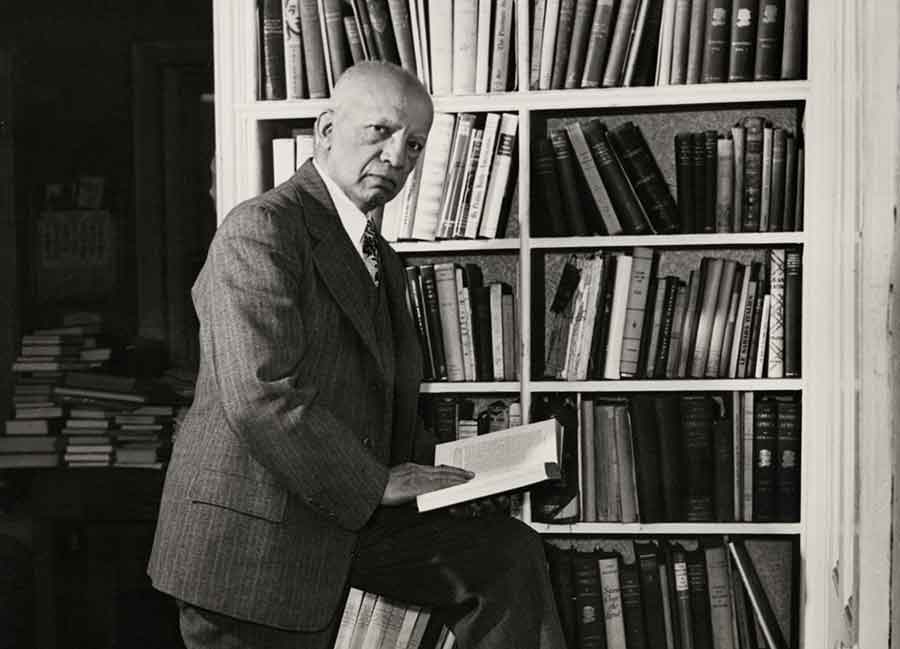(ThyBlackMan.com) The instant the Georgia Pardons and Paroles Board turned thumbs down on clemency for Troy Davis, the quiet murmurs grew to a crescendo in some quarters that President Obama should speak out on the pending Troy Davis execution. Filmmaker Michael Moore went even further and mused that Obama should make like President Eisenhower and take federal action to stop the execution. Moore was referring to Ike’s sending in the troops to quell racial rioting and enforce the federal court order ordering desegregation of Little Rock’s Central High School in 1957. Ike, of course, had the federal power and authority to take action precisely because it was a  federal court order.
federal court order.
The Davis horror was a state matter, prosecuted by a local district attorney, tried in state courts, and grotesquely settled by the state pardons and parole board. Obama had absolutely no legal power to intervene in the Davis case.
But that only quashes the misunderstanding of the law about Obama’s powers. It doesn’t answer the question whether Obama, as former President Jimmy Carter did, had the moral obligation to have expressed doubt or misgiving about the pending execution. The heartbreaking and painful answer is no. As much as we would have cheered the president if he had broken political protocol and weighed in on the Troy Davis execution, it wasn’t going to happen.
Obama, as all sitting presidents, doesn’t take positions on controversial state issues, and that’s the key. They are state issues, and to interfere is to step into a political minefield that would do far more harm than good. It would violate the rigid separation of federal and state powers. It would open the floodgate for any and every individual and group that has a legal wrong, grievance, or injustice to expect, even demand, that the president speak out on their cause. While there were tens of thousands nationally and globally that rallied behind Troy Davis, there were millions more that quietly and openly rallied behind the Georgia prosecutors, and back capital punishment. Polls show that a narrow majority still back the death penalty and judging from the lusty and embarrassing cheers GOP presidential candidate Rick Perry got at the recent GOP presidential debate in New Hampshire for virtually boasting about Texas’s obscene record of trying and killing em’ relatively quickly. The death penalty is an issue that any sitting president faced with a tough reelection would avoid like the plague.
Presidential statements on a controversial issues will polarize, and fuel political backlash. Sadly, this would have certainly been the case if Obama had uttered a word about Troy Davis. The Davis case was a near textbook example of the fury and passion that racial leaden cases and issues always stir. Davis is African-American, and his alleged victim was white. Obama is African-American and there’s rarely been a moment during his tenure in the White House that he hasn’t been relentlessly reminded of that. The one time that he did gingerly venture into the minefield of a racially charged local issue was his mild rebuke of the white officer that cuffed Harvard professor Henry Louis Gates in 2009. The reaction was instant and furious. Polls after his mild rebuke showed that a majority of whites condemned Obama for backing Gates and, even more ominously, expressed big doubts about his policies.
The president relearned a bitter lesson. If you speak out on an issue that involves race, police authority, and local law and local matters you will pay a heavy political price for it. Some say but presidents have routinely spoken out on the deaths of police officers, political initiatives in states, and other local issues. That’s true. But there is no implication or inference of political partisanship or interference in a state matter. Speaking out on a controversial racial issue, as Troy Davis was, would have a direct political inference, namely that the president was taking sides. President Obama has voiced support for reforms in the criminal justice system, especially in the area of sentencing, and has even expressed his personal qualms about some aspects of the death penalty. During the presidential campaign, he was clear “I have said repeatedly that I think that the death penalty should be applied in very narrow circumstances for the most egregious of crimes.”
Now in the wake of the Troy Davis atrocity with the horrific glare on the gaping racial and legal disparities and flaws in the death penalty and its application, the far better thing that Obama can do is to push ahead within federal law for reform and hold that up as a model for states to follow to reform their death penalty procedures or ideally do as many states have done to abolish the death penalty. That’s a reasonable expectation of the man that sits in the White House. To break silence on Davis as brutal and barbaric as the sentence and execution was, was not realistic.
Written By Earl Ofari Hutchinson
One can find more info about Mr. Hutchinson over at the following site; TheHutchinson ReportNews.
Also feel free to connect with him through twitter; http://twitter.com/earlhutchinson

















I want to hear from you:
http://www.washingtonpost.com/blogs/therootdc/post/amending-the-us-constitution/2011/09/27/gIQAOezO2K_blog.html
I understand Obama’s reluctance to speak out on behalf of Troy Davis, and I cannot respect him for it. Certainly, he would have drawn some political fire, but in the present political climate I think any indication from Obama that served to sharply distinguish him from blood-lusting morons like Rick Perry would ultimately prove to be advantageous to him. As it stood, I think the president appeared to be, once again, pallid and frightened. I mean, my mother wrote letters for Troy! I know Republicans who wrote letters and signed petitions for Troy and are absolutely disgusted with how it all went down. There are some things which transcend political persuasions and silly left-right paradigms–like morality, compassion, justice and reason, to name a few. If real people can comprehend these concepts, then why can’t our supposed representatives? I don’t think it’s too much to ask. And, point of fact, I’m not asking: I honestly do not believe that a member of any government or political hierarchy who is less compassionate and less courageous than I am deserves office. Where is the compass here?
Is it business as usual to favor legal shenanigans over even the pretense of justice? (Ask yourself when was the last time you even heard the word rehabilitation spoken when referring to prisoners in this country). Obama spoke out about Troy Davis when he was a senator, and, as far as I’m concerned, in the last four hours of Mr. Davis’ life, when he was strapped on a gurney and his case was kicked up to the United States Supreme Court, that ball, for 4 hours, was in Obama’s court. He could have said something then–almost anything –and appeared merciful and concerned. Instead, he appeared the way we have come to expect our “good guy” leaders to appear (you know, the ones who aren’t obvious tyrants) weak, soulless cowards, who have lobbyists and polling statistics where their balls should be. Who exactly do these “centrists” represent? Not Troy Davis, and not me.
Truly awful deeds are being done in our name and with our tacit complicity.